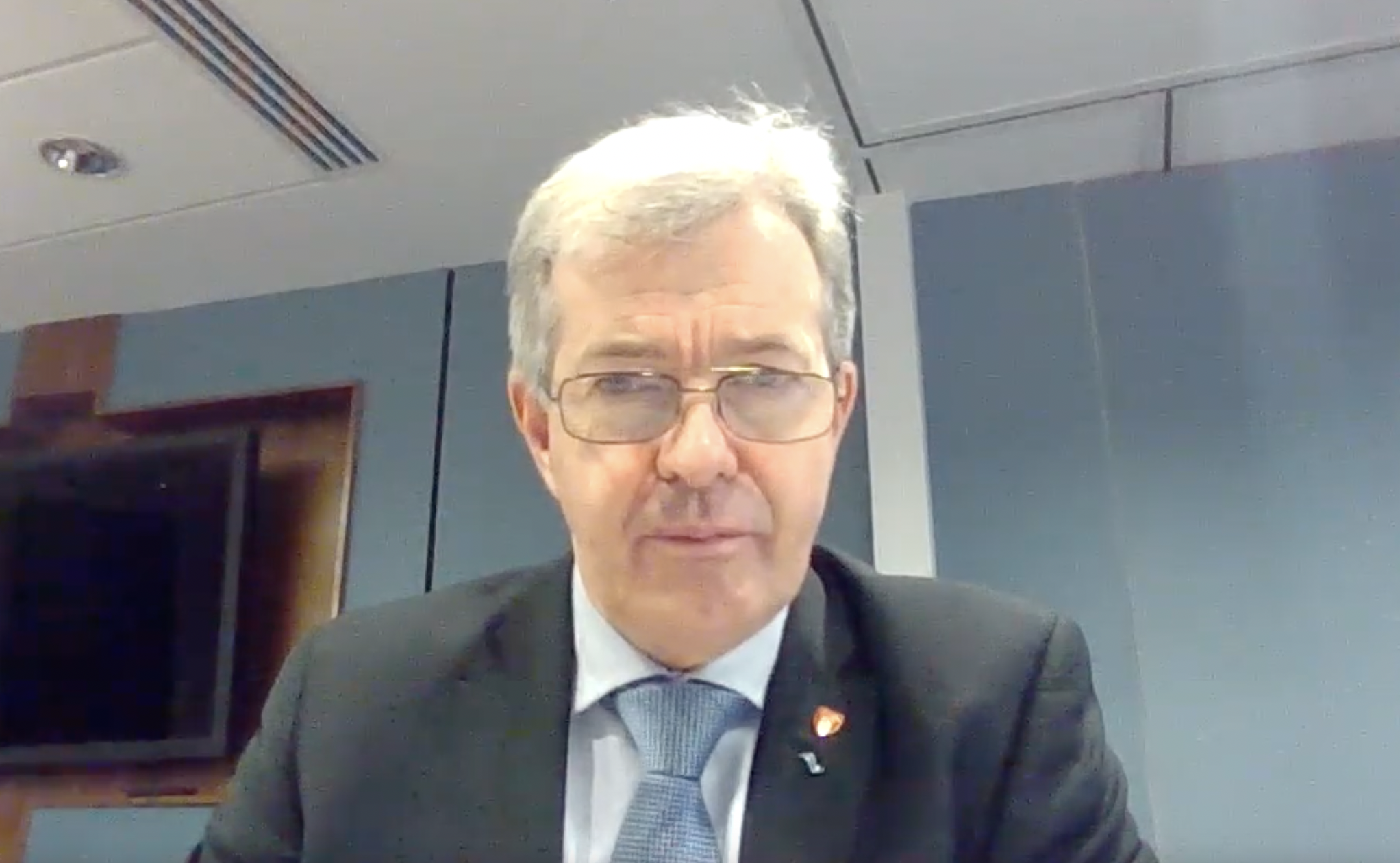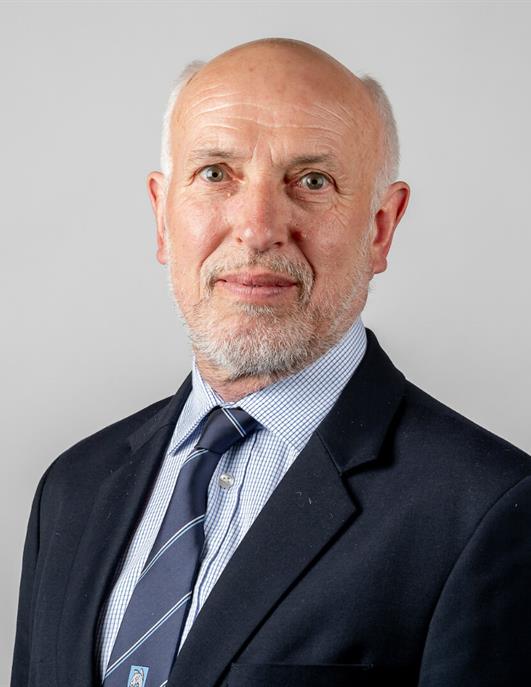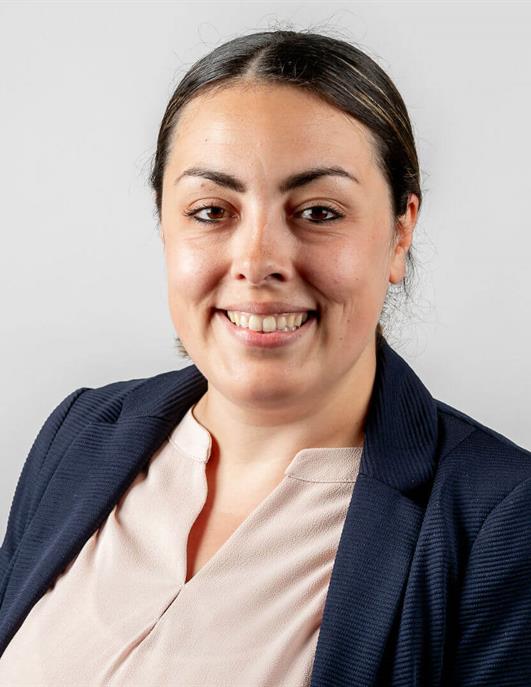


The States Assembly has approved plans for a £500,000 covid inquiry to be completed by the end of July 2022 - following an amendment to ensure it is conducted by a truly independent chair.
Constable Mike Jackson brought the proposition forward to provide “recommendations and guidelines for the management of any future pandemic or similarly disruptive event” as part of an amendment to the Government Plan 2022-2025.
It was a third victory for a backbench proposal during the course of the debate on the spending plans this week - though it did only pass following a tweak by the Council of Ministers.
Originally, 26 amendments to the Government Plan were proposed, but ministers accepted half of them, or suggested their own tweaks which the proposer of the amendment later accepted.
On Tuesday, backbenchers won a battle over stamp duty and secured a lower alcohol duty rise.
However, yesterday saw the Government score its first two wins against backbenchers, defeating efforts to widen the health scheme, and keeping £20m for a dedicated Technology Fund.
Here's how the three latest debates panned out...
The second amendment to be debated yesterday was put forward by the Corporate Services Scrutiny Panel to stop £20m being ringfenced for a new fund for technology in the Government Plan, until a more detailed version was brought to the Assembly in a separate proposition.

Pictured: The chair of the panel that lodged the amendment, Senator Kristina Moore, warned that there was not enough detail on the "specific terms of the fund or its purpose."
After a further amendment by the Chief Minister, which split the proposition in two, States members were asked to vote on:
Senator Kristina Moore, Chair of the Panel, advocated for members to vote for both, saying “there is concern that no further information has been provided by the Government in either its amendment to the amendment or to the Government plan itself regarding the specific terms of the fund or its purpose.”
She detailed that “the assembly has not been advised of any terms in relation to governance, risk assessments, selection procedures and any manpower or financial arrangements for the fund to be reassured of its delivery.
“Nor is there a sign of a clear working group to oversee the programme and guarantee accountability or that there are sufficient staff in the Government to manage this additional fund even at its early stages…”

Pictured: Senator John Le Fondré advocated for the fund, stating that not putting the £20m in place would send out a poor message to the island's digital sector.
Whilst the Chief Minister stated he was happy to accept the second part of this proposition, saying it was always the plan to bring it to the States Assembly, he fought for the fund’s sum to remain as £20m in the Government Plan.
He argued that Jersey, with the fastest internet speeds in the world, made an “ideal sandbox” for future digital technologies, and that this need to be acted on fast, so that the island should take advantage of its head start on other jurisdictions, which he estimated to be about “six years.”
“Nothing can happen until a separate proposition comes to this assembly with the terms fo reference etc. laid down as required under Article 6 of the Public Finances Law,” he reiterated.
“No money can be spent, nothing can be done, so there is an absolute safety and certainty for this Assembly that Government will not spend £1 of that £20m is set up.”
Following his speech, Deputy Inna Gardiner questioned the Chief Minister on why he could not settle on the figure going down to £0 for now, if a full proposition on the final figure was going to be debated later by the States Assembly anyway.
Senator Le Fondré responded by saying that it would send a poor message out to technology businesses not to have the £20m figure secured now.
“So we do quite strongly think that by reducing it to £0, the message that will then be sent out to the digital sector is the assembly has rejected the principles of the technology fund and that is not a good message to them being able to take out either internally or even externally,” he said.
Treasury Minister Deputy Susie Pinel further added that the current plan for the fund was to consult stakeholders in January, before lodging the proposition in March and then having the debate in April, pre-election.

Pictured: The amendment to the Government Plan is one of thirteen currently being debated by the States Assembly this week.
Fellow Corporate Services panel member Senator Tracey Vallois stood by Senator Moore’s argument, saying their amendment was not about the principle of technology, but of proper governance and accountability.
“What I am going to make the argument about is whether we know that £20m is enough or not enough, and we will only know that, if and when the proposition that establishes the fund identifies the terms of references, the requirements, the need,” Senator Vallois said.
She added how “we have seen historically the way risks have been multiplied because of the way previous funds may or may not have been managed,” and that they “can’t just be signing off 20m with the flick of a tick without actually having the appropriate information.”

Pictured: The amendment to keep the fund amount down to £0 for now was defeated by the Assembly, meaning it will go through on the final Government Plan as £20m.
Summing up, Senator Moore said that “There is clear message here that we have not learnt from the past."
She continued, referring back to earlier comments by Deputy Chief Minister Senator Lyndon Farnham that the debate was only 'in principle': “The Deputy Chief Minister suggested this is an in principle debate, but in fact it is not.
"The Government plan clearly states that there will be a transfer if members vote against this amendment, and that would not be the appropriate thing given the lack of supporting evidence.
“Supporting this amendment would not be an act of betrayal to the digital sector and it would not either send out the wrong message - in fact, it would send out the right message - that we take governance and accountability seriously.”
The first part of the proposition, which would have set the fund to £0 was defeated, with 18 votes for and 25 against, meaning that the transfer will remain at £20m.
However, the second part, which would ensure that the full proposition would be brought to the States, was adopted after being voted for by 42 members and one vote against.
Late on Wednesday afternoon, discussion began over whether the a £500,000 rapid covid review - as called for by Brigadier Nigel Hall on several occasions - should take place.
The covid review's proposer, Constable Mike Jackson, initially wanted the review to be concluded by 30 April 2022 by a “high quality, distinguished and independent” Chair, who could then select three to four other “medical and scientific experts” who have not been directly involved with the island’s covid response.
He suggested that red tape and bureaucracy should be cut to allow the review to happen quickly.
However, after several members raised concerns over the suggested timeline during the debate, he accepted an amendment from the Council of Ministers for the deadline to be pushed to 29 July 2022.

Pictured: Constable Mike Jackson accepted the extended deadline suggested by the Council of Ministers.
Stating that she was "playing devil's advocate", Senator Tracey Vallois questioned why such a review was required, given that the Comptroller and Auditor General was already carrying out a number of reviews into the island’s response to the pandemic.
Constable Mike Jackson argued that, in rejecting the notion of a rapid inquiry, the Council of Ministers would “turn away most of high calibre experts of people willing to devote three months”, whilst longer term panels would require different experts and be “considerably more expensive”.

Pictured: Deputy Carina Alves chairs the Privileges and Procedure Committee.
Deputy Judy Martin said she felt uncomfortable with the Constable's proposal, saying it felt "dubious" and that it sounded like "someone is sitting in the wings", which, she said, "doesn't sound too independent to me."
Deputy Carina Alves, who chairs the Privileges and Procedure Committee, said she understood the "urgency of this review - that has never been a question", but added: “The Constable has suggested throwing governance completely out of the window and a method that would leave us open to claims of bias… something as an Assembly we cannot risk doing.”
She said she wasn’t comfortable an independent and impartial appointments could be made in such a swift timescale and that it was “crucial” there was “an open and transparent process”.
Senator Ian Gorst questioned whether the proposed review would bring value, arguing it wouldn’t be “a public inquiry that will spend days and weeks and years looking at every single decision and taking great detailed evidence” but rather “quite high level on decision-making structures”.
“We are kidding ourselves if we think it can be done or if we think it’s more important that those officials spend their time serving this review rather than serving islanders in the way that they have done through the pandemic."
The Health Minister, Deputy Richard Renouf, said he would love to share the enthusiasm for getting the review done quickly and “cutting through the bureaucracy” but that the Assembly needed to be realistic.
Meanwhile, the Constable of St. John, Andy Jehan, said the ministers’ amendment to postpone the review to July 2022 was “superficial and vague” and didn’t give any indication as to how three months would improve “deliberation, analysis and outcomes”.
The States Assembly then broke for the evening, before returning this morning.
Speaking in the Assembly this morning, Constable Jackson said: “In the light of developments late yesterday which may lead to far more pressure on staff, notwithstanding the pressures here in the Chamber, I feel that despite the urgencies I have outlined, the reality is that it would be unwise to press for the delivery of the lessons learned report by the end of April. I therefore accept the Council of Ministers’ amendment and apologise to members who may have prepared for debate.”
The Chief Minister, Senator John Le Fondré, said he “very much welcomed” the Constable’s intervention and said he agreed with the Privileges and Procedure Committee that it was “critical” the chair of the review should be “absolutely independent and free of bias”.
AMENDMENTS: The 26 spending battles being fought this week
SCRUTINY'S VIEW: Flurry of recommendations issued before Gov Plan debate kicks off
Comments on this story express the views of the commentator only, not Bailiwick Publishing. We are unable to guarantee the accuracy of any of those comments.
The Government had its first real victory on Wednesday morning when proposals from Deputy Geoff Southern to widen the Health Access Scheme were defeated.
The Deputy sought to include all “ordinarily resident in the island” in the scheme, which provides free or subsidised GP visits to those on low incomes, by 2023, and to establish a funding mechanism for the 2023 Government Plan.
Pictured: Deputy Southern proposed to widen the Health Access Scheme.
Deputy Southern also requested to reduce both proposed transfers from the Health Insurance Fund to the Consolidated Fund to £0, and the proposed transfer from the Consolidated Fund to the Technology Fund to £7 million in 2022.
Presenting his amendment, he said expanding the current scheme and making healthcare affordable to all was a “political decision”.
He described the proposed transfers as “big scale raids” although adding that in the case of the social security reserve funds, the proposed transfer was “on balance probably effective and probably justifiable” and something the fund could take.
Deputy Southern said he believed the scheme should include all the people who are just below the current income support threshold and would be put in hardship for a £45 doctor bill.
He said doing away with a means-tested approach was “the single most effective way of improving people’s standards of living and income equality”.
Deputy Judy Martin, the Social Security Minister, described the proposition as “very lazy”, “the start of a “slippery slope”. She said Deputy Southern had not explained where the money would come from before suggesting the “hard working people of Jersey” would be paying the £15m she said it would cost.
Concluding her speech, she urged the Assembly not to support what she saw as an “ill-thought through” proposal that didn’t target the right people as she said “everybody definitely does not need it”.
Pictured: Social Security Minister Deputy Judy Martin called Deputy Southern's amendment "lazy" and said that he had not explained where the money had come from.
Deputy Rob Ward objected to the Minister’s view saying Deputy Southern had spent his career “trying to make things better for people in terms of access to GPs”.
He supported the proposition saying it would help real people, “the people demonised by the Alliance Party…the hardworking people who fall out of the income support bracket”.
He explained how he himself didn’t go to the doctor’s because it is “expensive” and noting he had recently been charged £64 for a blood test.
He suggested States Members should leave “an amalgamation of poor ideas and vitriol” to the side and question whether they wanted to make healthcare accessible to everyone.
His comments were echoed by the Environment Minister, Deputy John Young, who urged them to leave “divisive politics out of the debate” arguing they get in the way of “rationally looking at what the island needs”.
He concluded his address saying that while his heart was telling him to support the proposals, his head was telling him not to.
Deputy Monty Tadier said he knew several people who had died “perhaps prematurely because they didn’t access primary care early enough” and reminded members of the importance of seeing a GP routinely.
Senator Sam Mézec said making healthcare cheaper for people would improve it, noting “it there is a cost attached you are putting people off”.
He said that if States Members believed the Government would inevitably have to pay for healthcare, it would save time and money to start now.
The Health Minister Deputy Richard Renouf argued there was a better way of doing things than an “uncosted, unfunded scheme that does not create a sustainable funding and it just doesn’t work”.
Both Deputy Rowland Huelin and Deputy Lindsay Ash, the Assistant Treasury Minister, refused to support the proposition, the former saying he refused to raid the technology fund for it, while the latter said it was “alarming” as it wasn’t fully costed.
Summing up the debate, Deputy Southern repeated that a means tested system was “bureaucratically difficult and always cut people out” before reminding members that the number one responsibility of a government is to “look after the health of their population”.
The first two parts of his proposition were ultimately defeated, but the Assembly agreed that the current system should remain in place during the review proposed by the Government.